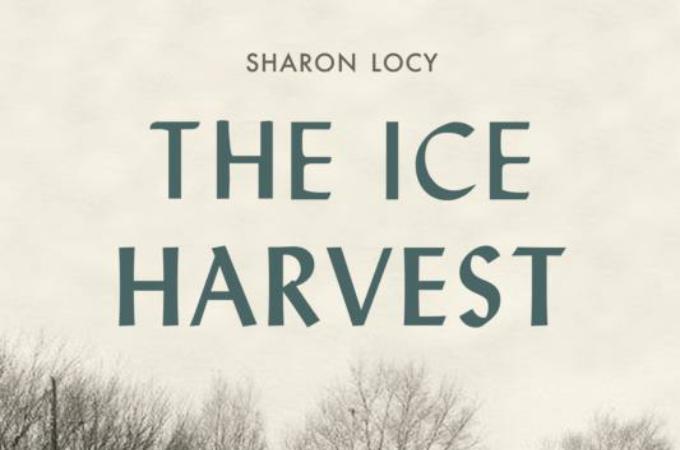Novel helps readers feel the chill of mid-century Minnesota
"The Ice Harvest" by Sharon Locy. Marymount Institute Press (Los Angeles, 2019). 156 pp., $14.95.
One of the great pleasures of reading is being invited to wander through a world of someone else's making. Characters, times and places come alive under a good writer's hand, and an engaged reader takes up residence and settles in.
C.S. Lewis felt the same way: "My own eyes are not enough for me, I will see through those of others. ... I will see what others have invented."
Fortunately for authors and readers alike, the playing field for what makes "a good read" is wide open. Events can stick with you ("This isn't as hard as ice harvesting, after all," you might think to yourself, after an hour in the garden); a particular character might remind you of a girl you knew in fourth grade. This is the true gift a reader experiences over and over: new and different places and ways of life, making new friends from the comfort of a living room sofa.
Welcome to 1952 and the Minnesota heartlands -- the setting for Sharon Locy's novel "The Ice Harvest," in which Locy explores the interior climates of her characters against the backdrop of her childhood town and a way of life that has long since been a thing of the past. Locy paints small-town life carefully and precisely. She renders clear-eyed portraits of people who, while obviously near and dear to her, emerge as three-dimensional, complex human beings.
Locy's novel follows three generations of the Loos family: Henry, the old-school ice harvester, emigrated from Flanders as a young man. He doesn't express himself so much as make pronouncements. He has worked hard and built a life around ice harvesting, but now his once-dependable customers are buying refrigerators and freezers. Still he persists, stubbornly: "He was in harmony with things, and there was a value in this, whether he sold the ice or not."
His son Ed is a classic mid-century adult, ill at ease with himself, struggling to reconcile his professional and personal identities. His job at Great Plains Life and Casualty is unfulfilling, and he casts about for solutions to his discontent in a town where he had never moved more than two blocks from the house where he was born.
In his father's view, Edward is "hammered down tight." Even his friend Harry is inspired to ask him, "What do you suppose it would take to make you happy?" But it is orderly and responsible Ed who helps his father clear out the ice house, preparing for the next harvest: "His father couldn't get anyone else to help him."
Ed is the father of young Margaret, a blossoming sentient being, immersed in and enamored of Catholic lore. Margaret shares a love of baseball and of the natural world with her grandfather Henry; she shares an unknown and unknowable "indefinable sadness" with her father: "something you couldn't explain, even if you had words for it."
She loves the legends and ideals of sainthood but is not sure it's all it's cracked up to be: "So much was asked of you to be that good. You got pierced with arrows. You lost your eyes or your limbs. You died, of course, that was the final requirement." She wants to be good -- in fact, is good -- but in tentatively questioning the world around her she learns to accept, allow for and even honor human frailty.
In one lovely scene, she introduces her friend Loretta to the joy of opera radio broadcast -- a taste of the exotic for Loretta; for Margaret, the "high Mass" of the performing arts.
Tracing prosaic arcs of longing, duty, desire and restlessness, Locy employs a consistently tender hand, rendering sensitive and sharply observed, nuanced characters that the reader wants the best for.
If, as William Nichols said in "Shadowlands, "we read to know that we are not alone," we also read to broaden our cultural experiences, to hear other voices in other rooms; to recognize ourselves, for better or for worse, in other people's struggles and accomplishments. You may feel the need to bundle up during the ice harvest, or imagine yourself accepting a cold lemonade as you spend a year with the Loos family, wondering what you'd say to each of them in person.
And that really is the gift of a good novel.
- - -
Clancy lives in the San Francisco area with her husband, Tom, two cats and a house full of books.



















